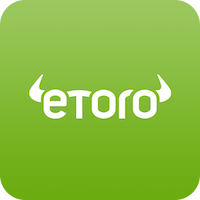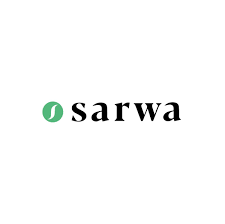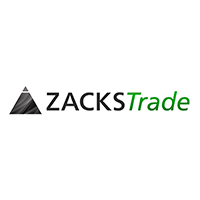The UAE stock market is gaining momentum, drawing investors to opportunities in local and global equities amid a robust economic backdrop. Year-to-date in 2025, the Abu Dhabi Securities Exchange has achieved a 7% growth in market capitalization, underscoring the expanding appeal of stock investing for residents and expats in the UAE’s thriving economy.
Our experts evaluated numerous brokers using real money accounts to pinpoint the top 10 most trustworthy and regulated stock brokers in the UAE. Offering advantages such as low trading fees, advanced charting tools, and compliance with SCA and DFSA standards, these platforms empower secure and effective equity trading.
Selecting the ideal stock broker does not have to be daunting. This resource streamlines your decision with in-depth comparisons of fees, execution speeds, and research resources, helping you match a broker to your strategy, from value investing to growth pursuits. Check out our rankings, detailed reviews, and FAQs to begin building your portfolio with confidence today.
Best Stock Brokers in UAE Rankings
 1
1eToro 4.9 Your capital is at risk.
Best for beginners. Great trading fees. Social trading. Copy trading.
 2
2Interactive Brokers 4.9 Your capital is at risk.
Best choice of stocks. Professional trading platform. Very good trading fees.
 6
6Trading 212 4.3 Your capital is at risk.
Best trading conditions. Great for beginners. Easy to use trading platform.
 7
7Swissquote 4.3 Your capital is at risk.
Safest stock broker. Great choice of stocks. Very good research tools.
 8
8IG Trading 4.2 Your capital is at risk.
Best choice of trading platforms. Great web trading platform. Very good educational tools.
Safety and regulation overview in UAE
The UAE has a robust regulatory framework to ensure fairness, transparency, and investor protection in stock trading, creating a secure environment for investors. Key regulatory bodies include:
Securities and Commodities Authority (SCA): The SCA is the primary regulatory body for securities trading in the UAE. It oversees stock exchanges, brokers, and investment funds, ensuring compliance with local laws and protecting investors from fraud. The SCA mandates brokers to maintain high operational and reporting standards.
Dubai Financial Services Authority (DFSA): The DFSA regulates financial services in the Dubai International Financial Centre (DIFC). It ensures that brokers and financial institutions adhere to stringent standards for transparency, risk management, and investor protection.
Abu Dhabi Global Market (ADGM) Financial Services Regulatory Authority (FSRA): The FSRA governs financial activities within the ADGM, providing a robust framework for stock trading and investment services. It emphasizes market integrity and investor protection.
Central bank of the UAE: The Central Bank regulates banking and financial activities to maintain the overall stability of the UAE financial system. It also plays a role in ensuring that brokers operating in the UAE comply with capital adequacy and anti-money laundering regulations.
Investor protection mechanisms: While the UAE does not have an investor protection fund like the SIPC in the U.S., regulations under the SCA, DFSA, and FSRA ensure client funds are segregated from brokers’ operational funds, reducing the risk of mismanagement.
Tier-1 International Regulators
For UAE investors considering international brokers, working with entities regulated by Tier-1 regulators ensures additional security and transparency. Examples include:
- Securities and Exchange Commission (SEC) (USA): Sets rigorous standards for financial transparency and investor protection, making it a trusted regulator for brokers offering services globally.
- Financial Conduct Authority (FCA) (UK): Enforces stringent rules for client fund segregation, market practices, and operational integrity.
- Australian Securities and Investments Commission (ASIC): Ensures high standards of operational transparency and investor safeguards for brokers.
- Cyprus Securities and Exchange Commission (CySEC): Commonly regulates international brokers serving UAE clients, with protections like the Investor Compensation Fund.
Safety and regulation comparison for top brokers
Here are some key areas that determine how trustworthy a broker is: who they’re top tier regulators are, investor protection they provide, and if they have any history of misconduct, or scandals. Take a look at the table below where we break down this information for you.
| Broker Name | ||
|---|---|---|
| eToro | ||
| Interactive Brokers | ||
| Capital.com | ||
| TradeStation | ||
| Mexem | ||
| Trading 212 | ||
| Swissquote | ||
| IG | ||
| Sarwa | ||
| Zack’s Trade |
Note for UAE Clients: Most brokers aren’t regulated by the UAE’s SCA or DFSA unless specified (e.g., Sarwa). Protection varies by jurisdiction, so confirm with the broker’s local entity for UAE-specific coverage.
Fees compared
Fees of selected platforms are compared in the table below. eToro allows trading on the ADX with a stock commission fee of $2, while Interactive Brokers offers low US stock fees at $0.005 per share with a $1 minimum. Note that Interactive Brokers does not support ADX trading.
| Broker Name | ||
|---|---|---|
| eToro | ||
| Interactive Brokers | ||
| Capital.com | ||
| TradeStation | ||
| Mexem | ||
| Trading 212 | ||
| Swissquote | ||
| IG | ||
| Sarwa | ||
| Zack’s Trade |
Non-trading fees compared
Non-trading fees like account, deposit, withdrawal, and inactivity fees are compared below. eToro has no deposit fees but charges $5 for withdrawals, while Interactive Brokers has no inactivity fees for dormant accounts.
| Broker Name | ||
|---|---|---|
| eToro | ||
| Interactive Brokers | ||
| Capital.com | ||
| TradeStation | ||
| Mexem | ||
| Trading 212 | ||
| Swissquote | ||
| IG | ||
| Sarwa | ||
| Zack’s Trade |
Minimum deposit, deposit methods and account opening compared
Minimum deposit, deposit method, how fast it takes to open an account, and other useful information of selected platforms are compared in the table below. eToro has a minimum deposit requirement of $100 for UAE clients, Mexem has very fast account openings which can be opened in a day.
| Broker Name | ||
|---|---|---|
| eToro | ||
| Interactive Brokers | ||
| Capital.com | ||
| TradeStation | ||
| Mexem | ||
| Trading 212 | ||
| Swissquote | ||
| IG | ||
| Sarwa | ||
| Zack’s Trade |
Mobile, desktop and web trading platforms compared
Trading platforms are compared in the table below. Interactive Brokers had the best web/desktop trading platform on our list and Tradestation had the best mobile app we tested.
| Broker Name | ||
|---|---|---|
| eToro | ||
| Interactive Brokers | ||
| Capital.com | ||
| TradeStation | ||
| Mexem | ||
| Trading 212 | ||
| Swissquote | ||
| IG | ||
| Sarwa | ||
| Zack’s Trade |
Product selection, markets and financial assets compared
Available financial products are compared below. Interactive Brokers and Capital.com offer AED as a base currency, with Interactive Brokers providing the widest stock selection for UAE clients.
| Broker Name | ||
|---|---|---|
| eToro | ||
| Interactive Brokers | ||
| Capital.com | ||
| TradeStation | ||
| Mexem | ||
| Trading 212 | ||
| Swissquote | ||
| IG | ||
| Sarwa | ||
| Zack’s Trade |
User base of top stock brokers in UAE compared
The number of clients per broker are compared in the table below. eToro had the largest user-base on our list at 35 million users.
| Broker Name | |
|---|---|
| eToro | |
| Interactive Brokers | |
| Capital.com | |
| TradeStation | |
| Mexem | |
| Trading 212 | |
| Swissquote | |
| IG | |
| Sarwa | |
| Zack’s Trade |
Top stock brokers in UAE reviewed
1. eToro – Best for beginners. Great trading fees. Social trading. Copy trading.
Min Deposit: $100
US stock fee: $0
Time to open account: 1 day
Demo account: Yes
61% of retail investor accounts lose money when trading CFDs with this provider. You should consider whether you can afford to take the high risk of losing your money.
Recommended for: Traders interested in social trading and zero-commission stock trading.
Key points:
- Trade global stocks, ETFs, and assets from major markets like NASDAQ and NYSE
- Only broker with local access to UAE stocks via ADX
- Regulated by Abu Dhabi Global Market (ADGM) under FSRA
- Sharia-compliant Islamic trading accounts with interest-free options
- CopyTrader feature to replicate top global investors’ strategies
- Arabic-language customer support for easy communication
Pros:
- Access to over 6000+ stocks across 20 global markets
- Easy to use trading interface
- Great mobile trading app and platforms
- Industry leading social/copy trading app
- Responsive customer support
Cons:
- No AED support for deposits or withdrawals, leading to currency conversion fees
- Limited advanced trading tools for professional traders
61% of retail investor accounts lose money when trading CFDs with this provider. You should consider whether you can afford to take the high risk of losing your money.
2. Interactive Brokers – Best choice of stocks. Professional trading platform. Very good trading fees.
Min Deposit: $0
US stock fee: $0.005 per share with $1 min
Time to open account: 1-3 days
Demo account: Yes
Recommended for: Traders looking for broad market access and a professional trading environment.
Key points:
- Global market access across 150+ markets in 33 countries
- Multi-currency accounts with AED base currency support
- Advanced risk management and portfolio tools
- Competitive pricing for high-volume traders
- Regulated by SEC, FCA, ASIC, and others
Pros:
- Best market coverage in the industry
- Intuitive mobile trading app
- Day trading, scalping, algorithmic and automated trading allowed
- Compatible features for casual and professional traders
- Responsive customer support
Cons:
- Few deposit and withdrawal options (UAE bank transfer only)
63.3% of retail investor accounts lose money when trading CFDs with IBKR.
3. Capital.com – Best for Forex & CFD’s with excellent research tools.

Min Deposit: $20 (or currency equivalent) / $10 for bank cards & Apple Pay
US stock fee: Spread from 0.1% (CFD)
Time to open account: 1 day
Demo account: Yes
CFD trading carries risk. Capital.com is regulated by the Securities and Commodities Authority.
Recommended for: Traders looking for a great trading platform and excellent research.
Key points:
- Access to a wide range of markets (2500+ shares via CFDs)
- Competitive trading fees (spreads from 0.1%)
- Access to advanced order types ( market, limit and stop orders)
- Wide range of trading tools (watch lists, screeners, alerts, risk management tools)
- Extensive research tools and data (trade ideas, stock screeners, indicators)
- Fast and reliable trade execution
- Great education and research materials (videos, analysis, podcasts, headlines)
- Regulated by SCA in the UAE
Pros:
- Industry leading market coverage via CFDs
- Intuitive mobile trading app
- Day trading, scalping, algorithmic and automated trading allowed
- Compatible features for casual and professional traders
- Responsive customer support (Arabic support 9:00am-9:00pm Mon-Fri)
Cons:
- Limited educational resources for beginner traders
CFD trading carries risk. Capital.com is regulated by the Securities and Commodities Authority.
4. TradeStation – Best for active traders. Great mobile trading platform. Very good educational tools.

Min Deposit: $0 ($2000 – Margin account; $25000 – Day Trading account; $5000 – Futures account)
US stock fee: $0
Time to open account: 1-2 days
Demo account: Yes
Recommended for: Active traders on US market.
Key points:
- $0 stock trades (up to 10,000 shares)
- 5,500+ stocks, ETFs
- Fast order execution
- Back-testing, automated trading
- Penny stocks (OTCBB)
Pros:
- Wide US market access
- Intuitive mobile app
- Day trading, scalping, automation
- Customizable platforms
- Reliable support
Cons:
- No AED base currency
- Limited non-US markets
5. Mexem – Best trading fees. Great choice of stocks. Very good research tools.

Min Deposit: $0
US stock fee: $0.005 per share with $1 min
Time to open account: 1 day
Demo account: Yes
Recommended for: Traders seeking low fees and advanced platforms.
Key points:
- Access to 40+ global markets
- Low stock/ETF fees
- Advanced platforms, pro tools
- Research/analytics tools
- Efficient support
Pros:
- Low fees for stocks and ETFs
- Wide range of tradable assets across global markets
- In-depth research and analytical tools
- Quick and paperless account opening
- Responsive customer service
Cons:
- No AED-denominated accounts or Sharia-compliant options
- Complex platforms may overwhelm beginners
6. Trading 212 – Best trading conditions. Great for beginners. Easy to use trading platform.
Recommended for: Investors looking for easy-to-use trading platforms.
Key points:
- $0 commission on stocks/ETFs
- User-friendly platforms
- Fractional shares available
- AutoInvest for automation
- Interest on uninvested cash
Pros:
- Zero commission fees for cost-effective trading
- Easy and fully digital account opening process
- Access to educational resources for informed investing
- Regulated by FCA and CySEC for security
- Responsive customer support
Cons:
- Higher fees for CFD trading
- Limited advanced research tools
7. Swissquote – Safest stock broker. Great choice of stocks. Very good research tools.

Min Deposit: 0
US stock fee: $9-$190
Time to open account: 1-2 days
Demo account: Yes
84.5% of retail investor accounts lose money when trading CFDs with this provider.
Recommended for: Traders looking for broad market access and great trading environment.
Key points:
- Trade stocks/CFDs on NYSE, NASDAQ, FTSE
- Platforms: MT5, Advanced Trader
- Regulated by FINMA, FCA
- Research tools, education
- Banking services included
Pros:
- Wide selection of stocks and stock CFDs for diversification
- Intuitive and advanced trading platforms suitable for all levels
- Strong regulatory oversight ensuring fund and data security
- Extensive educational and research resources
- Integrated banking and trading services for added convenience
Cons:
- Higher trading fees compared to some competitors
- Complex platform features may overwhelm novice traders
84.5% of retail investor accounts lose money when trading CFDs with this provider.
8. IG – Best choice of trading platforms. Great web trading platform. Very good educational tools.

Min Deposit: $5500
US stock fee: $0.02 per share with $10 min
Time to open account: 1-3 days
Demo account: Yes
Recommended for: Traders looking for user friendly and professional trading environment.
Key points:
- Access to NYSE, NASDAQ, LSE
- Platforms: IG, MT4, ProRealTime
- IG Academy education
- Regulated by FCA, ASIC
- Demo accounts available
Pros:
- Wide range of tradable assets for extensive diversification
- Intuitive and advanced trading platforms suitable for all levels
- Extensive educational resources for informed decision-making
- Strong regulatory oversight ensuring a secure trading environment
- Availability of demo accounts for practice trading
Cons:
- High trading fees for stock CFDs
75% of retail CFD accounts lose money
9. Sarwa – Best local broker. Full-time service. Very good customer support.
Recommended for: UAE traders seeking local broker.
Key points:
- Low fees (no commission on trades)
- 3,000+ stocks, fractional shares
- Easy interface
- AED deposits
- DFSA, FSRA regulated
- Simple trading options
Pros:
- Local offices in Dubai and Abu Dhabi
- Great for beginners and long term investors
- Self directed and automated trading allowed
- Access to free financial advisory services
- Deposits in AED allowed (no conversion fees)
Cons:
- Limited Research and educational tools
- Penny stocks are not available
10. Zack’s Trade – Best customer support. Great choice of stocks. Very good trading conditions

Min Deposit: 0
US stock fee: $0.01 per share with $1 min
Time to open account: 3+ days
Demo account: Yes
Recommended for: Traders looking for comprehensive research tools.
Key points:
- Access to 90+ markets, 19 countries
- Platforms: Zacks Trade Pro, Client Portal, mobile
- Premium research, reports
- Margin rates from 3.59%
- Free broker-assisted trades
Pros:
- Low-cost trades with fees as low as $0.01 per share
- Extensive research offerings, including premium reports
- International trading access across multiple global exchanges
- Robust and customizable trading platforms
- No inactivity fees for accounts over $25,000
Cons:
- Limited educational resources for beginner traders
How to find the best stock broker in the UAE
Selecting the right broker is essential for both beginner and experienced traders in the UAE. Here’s how we evaluate the best options for you:
- Safety (Regulation): We prioritize brokers regulated by trusted authorities such as the Securities and Commodities Authority (SCA), Abu Dhabi Global Market (ADGM), and Dubai Financial Services Authority (DFSA). Compliance with these local regulators ensures secure and transparent trading for UAE clients. Brokers regulated by Tier-1 international authorities like the FCA or ASIC also provide added security for international stock trading.
- Fees: We focus on brokers offering competitive fees for both local and international stock trading. This includes low or no commissions, transparent pricing, and competitive spreads. Special attention is given to brokers that keep currency conversion and withdrawal fees minimal, which is especially important for trading global markets.
- Non-trading fees: Brokers are assessed for hidden costs like account maintenance, inactivity charges, or withdrawal fees. Platforms with minimal or no non-trading fees are preferred. Consideration is also given to brokers offering favorable currency exchange rates for investors trading stocks on international exchanges.
- Deposit/withdrawal, account opening: We value brokers that provide a fast and straightforward account setup process with reliable deposit and withdrawal options tailored for UAE clients. Support for local payment methods such as UAE bank transfers and credit cards is a significant advantage, ensuring smooth transactions.
- Mobile app/trading platforms: We evaluate brokers based on the quality of their mobile and desktop trading platforms. The best brokers offer intuitive platforms with features like real-time price alerts, advanced charting tools, and efficient trade execution. Platforms supporting both local UAE stocks and global equities provide added versatility for UAE investors.
Taxation for stock trading in the UAE
Understanding tax implications is important for traders in the UAE:
No personal income tax: The UAE does not impose personal income tax on residents. This means profits from stock trading, whether short-term or long-term, are not subject to taxation.
Dividend income: Dividends from UAE-listed companies are generally tax-free for residents. However, dividends from international stocks may be subject to withholding taxes in the source country. Investors should check for double taxation treaties between the UAE and the relevant country to determine if tax relief is available.
Corporate tax implications: Starting in 2023, businesses generating more than AED 375,000 in annual profits may be subject to corporate tax in the UAE. If stock trading is part of a business operation, the profits might fall under this tax regime. Consulting a tax advisor is recommended for business accounts.
Currency conversion considerations: While there are no specific taxes on currency conversions in the UAE, fluctuations in exchange rates when trading international stocks can indirectly impact profitability.
International tax obligations: UAE residents trading in foreign markets should be aware of tax obligations in the respective countries, such as capital gains or dividend taxes. Consulting with a tax advisor can help clarify any cross-border tax requirements.
The UAE’s tax environment is highly favorable for individual traders, but businesses and those trading international stocks should seek professional advice to navigate specific tax rules effectively
How to invest in stock from the UAE
Follow these steps to start trading stocks in the UAE effectively:
- Choose a broker: Pick a broker regulated by UAE authorities (SCA, ADGM, or DFSA) or a trusted international broker offering access to UAE and global markets.
- Get an Investor Number (NIN): If trading on DFM or ADX, apply for an NIN, a requirement for UAE-listed stocks.
- Open an account: Submit your Emirates ID, passport, proof of address, and bank details to set up an account online.
- Fund your account: Use UAE bank transfers, credit cards, or e-wallets. Look for brokers that accept AED to avoid currency conversion fees.
- Understand the market: Research UAE-listed companies, industries, and trends, and learn about global stock markets for international trading.
- Set goals and strategy: Define your investment goals (e.g., growth or income) and choose a strategy that fits your risk tolerance.
- Start trading: Use your broker’s platform to trade local stocks on DFM, ADX, or NASDAQ Dubai, as well as global stocks.
- Manage risks: Diversify your investments, set stop-loss orders, and regularly monitor your portfolio.
- Track and adjust: Review performance, rebalance as needed, and adapt your strategy based on market changes or financial goals.
- Withdraw or reinvest profits: Decide whether to withdraw profits or reinvest them for long-term portfolio growth.
Which types of trading are legal in the UAE
In the UAE, trading is regulated by authorities like the Securities and Commodities Authority (SCA), the Abu Dhabi Global Market (ADGM), and the Dubai Financial Services Authority (DFSA). These regulatory bodies ensure fairness, transparency, and investor protection. Here are the types of trading allowed in the UAE:
- Stock trading: Buying and selling shares of companies listed on UAE exchanges like the Dubai Financial Market (DFM) and the Abu Dhabi Securities Exchange (ADX), as well as international markets through approved brokers.
- Forex trading: Trading currency pairs is legal through brokers regulated by the SCA, ADGM, DFSA, or international regulators authorized to operate in the UAE.
- Derivatives trading: Trading in futures and options on regulated platforms, including commodities and financial instruments, is permitted under UAE law.
- Commodity trading: Trading physical commodities like gold, silver, and oil is legal, often conducted on platforms like the Dubai Gold and Commodities Exchange (DGCX).
- Mutual funds and bonds: Investing in mutual funds, government bonds, and corporate bonds is available through licensed brokers and financial institutions.
- Cryptocurrency trading: While not fully regulated, cryptocurrency trading is allowed under certain conditions through platforms approved by the UAE’s regulators.
It is essential to use brokers or platforms regulated by UAE authorities or internationally recognized bodies authorized to operate locally. This ensures secure, transparent, and compliant trading.
Conclusion
After analyzing and comparing the top brokers available to UAE traders, we have chosen eToro as the best stock broker in the UAE.
eToro stands out for its extensive access to both UAE-listed and global stocks, making it a versatile platform for traders seeking diversification. Regulated by the Abu Dhabi Global Market (ADGM) and other top-tier international authorities, eToro ensures a secure and transparent trading environment tailored to UAE clients.
Its innovative features, such as social trading and the ability to copy top-performing investors, make eToro particularly appealing for beginners. Competitive fees, a user-friendly platform, and a robust mobile app further enhance the trading experience, providing tools and insights to manage investments effectively. eToro’s comprehensive offerings and regulatory compliance make it the ideal choice for stock trading in the UAE.
 1
1eToro 4.9 Your capital is at risk.
Best for beginners. Great trading fees. Social trading. Copy trading.
 2
2Interactive Brokers 4.9 Your capital is at risk.
Best choice of stocks. Professional trading platform. Very good trading fees.
 6
6Trading 212 4.3 Your capital is at risk.
Best trading conditions. Great for beginners. Easy to use trading platform.
 7
7Swissquote 4.3 Your capital is at risk.
Safest stock broker. Great choice of stocks. Very good research tools.
 8
8IG Trading 4.2 Your capital is at risk.
Best choice of trading platforms. Great web trading platform. Very good educational tools.
FAQ
What is an online broker?
In the UAE, an online broker is a financial service provider that allows you to buy and sell financial instruments such as stocks, ETFs, mutual funds, bonds, forex, and derivatives through an online platform or app. These brokers provide access to both local exchanges, such as the Dubai Financial Market (DFM) and Abu Dhabi Securities Exchange (ADX), and international markets, offering tools to monitor portfolios, analyze markets, and execute trades conveniently.
What is a stockbroker?
A stockbroker is a person or company that enables investors to buy and sell stocks or other investment assets. There are three main types of stockbrokers: full-service, discount, and online. A full-service stockbroker manages your money and investments on your behalf and may also offer financial advice.
A discount stockbroker allows you to choose your own investments but buys or sells them for you, and some also offer general information and recommendations to help you decide which assets to buy. An online stockbroker lets you buy and sell investment assets yourself through an online platform or a mobile app. Each type of stockbroker charges fees to cover the cost of running your investment account, buying and selling stocks, and/or trading in a foreign currency.
An online brokerage or investment platform is a website or app that allows you to buy, hold, and sell assets such as stocks, shares, and investment funds. Most providers offer access to companies across a range of industries and markets, including the US, UK, and Europe.
What should I look for when choosing a broker in the UAE?
- Regulation: Ensure the broker is licensed by UAE authorities like the Securities and Commodities Authority (SCA), Abu Dhabi Global Market (ADGM), or Dubai Financial Services Authority (DFSA).
- Fees: Look for brokers with low commissions, transparent pricing, and minimal fees for withdrawals, currency conversions, or inactivity.
- Trading platforms: Opt for brokers offering user-friendly platforms with advanced tools, mobile compatibility, and access to both UAE and international markets.
- Asset variety: Choose brokers providing a wide selection of assets, including UAE-listed stocks, global equities, ETFs, and forex.
- Customer support: Look for brokers offering responsive support in English and Arabic, with availability during UAE market hours.
Are UAE brokers safe?
Brokers regulated by the SCA, ADGM, or DFSA are considered safe, as they adhere to stringent operational and financial standards. International brokers regulated by Tier-1 authorities like FCA or ASIC and authorized to operate in the UAE also provide secure trading environments.
What fees should I expect when trading in the UAE?
Expect brokerage fees, account maintenance charges, currency conversion fees for international markets, and occasional withdrawal fees. Brokers with locally tailored pricing are preferable to minimize costs.
What documents do I need to trade in the UAE?
- Emirates ID or valid passport
- Proof of residence (utility bill or rental agreement)
- Bank account details
- National Investor Number (NIN) for DFM and ADX trading
Can UAE clients trade internationally?
Yes, UAE clients can trade global markets through locally regulated brokers or internationally licensed platforms authorized to operate in the UAE. Ensure the broker provides access to your desired markets and complies with local regulations.
How do I manage risks when trading from the UAE?
Use tools like stop-loss orders, diversify across sectors and markets, and stay informed about market conditions. Select brokers offering features like risk alerts and negative balance protection to safeguard your investments.
What is negative balance protection?
Negative balance protection prevents traders from losing more money than they have deposited. This is especially important for leveraged trading to protect against volatile market movements.
What are ETFs, and why invest in them?
ETFs allow you to invest in a basket of assets like stocks or commodities and trade them like stocks. They offer diversification, low costs, and ease of trading, making them attractive to UAE investors looking to access both local and international markets.
How can I ensure my online trading is secure?
Use strong passwords, enable two-factor authentication, and trade through regulated brokers with encrypted platforms. Regularly monitor your account for unauthorized activity.
What is day trading, and is it suitable for me?
Day trading involves buying and selling securities within the same trading day. It requires time, quick decision-making, and a tolerance for high risk, making it better suited for experienced traders.
What is a brokerage account, and why do I need one in the UAE?
A brokerage account allows you to trade and invest in financial instruments such as stocks, ETFs, and forex. It is essential for accessing local exchanges like DFM and ADX or international markets.
Are brokerage charges negotiable in the UAE?
Some brokers may offer negotiable fees, especially for high-volume traders or business accounts. Inquire with your broker for potential discounts or tiered pricing options.
What is margin trading, and is it available in the UAE?
Margin trading lets you borrow funds to buy more securities than you could with your available capital, amplifying potential returns and risks. It is available in the UAE through brokers authorized for leveraged trading. Ensure you understand the risks before using this feature.
Do brokers in the UAE offer sharia-compliant trading?
Many brokers in the UAE provide sharia-compliant (Islamic) accounts with no interest charges, suitable for observant Muslim traders.
Which local stocks can I trade in the UAE?
UAE traders can access stocks listed on the Dubai Financial Market (DFM), Abu Dhabi Securities Exchange (ADX), and NASDAQ Dubai.
What is the National Investor Number (NIN), and why is it important?
A National Investor Number is required for trading on DFM and ADX, and you can obtain it by registering with these exchanges.
Do UAE residents pay taxes on stock trading?
No, UAE residents are not subject to personal income tax on trading profits. However, be aware of potential taxes when trading international stocks.
What are the most common assets traded in the UAE?
Stocks, ETFs, forex, commodities (like gold), mutual funds, and derivatives (futures and options) are commonly traded by UAE investors.
Can I trade cryptocurrencies in the UAE?
Yes, but only through authorized platforms such as eToro or brokers regulated by UAE authorities offering crypto assets.
What trading hours should I be aware of?
UAE stock markets operate Sunday to Thursday, with DFM and ADX trading hours typically from 10:00 AM to 3:00 PM UAE time.
What are the biggest stock exchanges in the UAE?
The biggest stock exchanges in UAE are listed below.
- The Dubai Financial Market, or DFM for short
- The Abu Dhabi Securities Exchange, or ADX for short
- The NASDAQ Dubai
What are the different stock brokerage accounts available in the UAE?
There 3 different stock brokerage accounts available in the UAE are listed below.
- Local stock brokers: is only available for people living in the UAE (both natives and expats). The Ras Al Khaimah Investment Authority (a UAE government agency) can be used instead.
- A UAE bank brokerage accounts: UAE bank accounts are available to both foreigners and nationals living in the UAE and allow users access to self directed trading and professional managed investing
- Online stock brokers: allows self directed trading, access to international markets and total control of investment through the same dashboard.
Can I invest in the UAE stock market as a tourist or expat?
Everyone can invest in the UAE stock market with a valid NIN number.
Everything you find on Business24-7 is based on trustworthy data and impartial analysis. We combine over 11 years of financial expertise with valuable reader feedback to provide accurate insights. Learn more about our methodology.
Disclaimer
eToro is a multi-asset platform which offers both investing in stocks and cryptoassets, as well as trading CFDs.
Please note that CFDs are complex instruments and come with a high risk of losing money rapidly due to leverage. 61% of retail investor accounts lose money when trading CFDs with this provider. You should consider whether you understand how CFDs work, and whether you can afford to take the high risk of losing your money
This communication is intended for information and educational purposes only and should not be considered investment advice or investment recommendation. Past performance is not an indication of future results.
Copy Trading does not amount to investment advice. The value of your investments may go up or down. Your capital is at risk.
Crypto assets are complex and carry a high risk of volatility and loss. Trading or investing in crypto assets may not be suitable for all investors. Take 2 mins to learn more
eToro USA LLC does not offer CFDs and makes no representation and assumes no liability as to the accuracy or completeness of the content of this publication, which has been prepared by our partner utilizing publicly available non-entity specific information about eToro.









